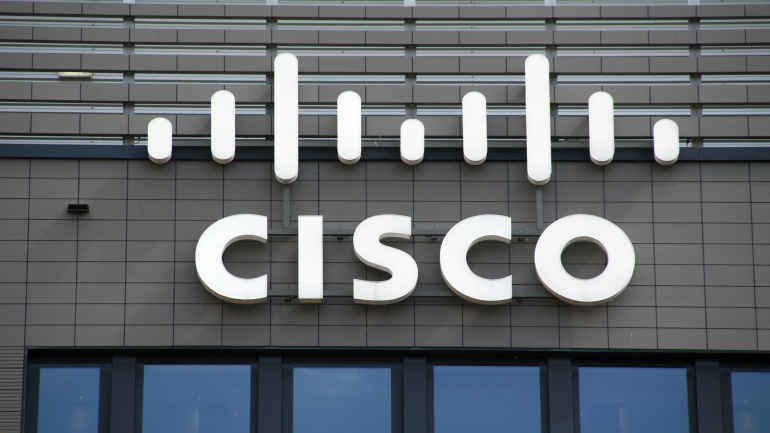In an era dominated by advanced communication technologies, Voice over Internet Protocol (VoIP) has emerged as a revolutionary solution that has transformed the way we connect and communicate. However, beyond its well-known benefits, there exist a plethora of intriguing facts about VoIP that often go unnoticed. From its historical origins to its impact on businesses and individuals, delving into these lesser-known aspects of VoIP unveils a fascinating realm of innovation and efficiency. Here is a list of facts about VoIP you might have missed. The first VoIP call was made in 1973. The call used an early version of the Internet called ARPANET and it was carried out as a part of a communication experiment. The first VoIP call was made between the Institute of Information Sciences and the Lincoln Laboratory in the United States. The first VoIP call in 1973 was a little…
Telinta, a global leader in cloud-based VoIP switching and billing solutions, has announced the deployment of additional infrastructure in Bangalore, India. These new facilities expand the company’s previous deployments in key global telecommunications markets in North America, Europe and Asia. The infrastructure deployment in India complements Telinta’s already existing facilities at 165 Halsey Street near New York, as well as additional infrastructure in Dallas, Frankfurt, London, New York, Newark, Singapore, Tokyo and Toronto. The facilities in these global markets provide Telinta VoIP’s service providers’ customers with significant additional availability, reliability and performance. The company’s award-winning cloud-based platform TeliCoreTM is the largest hosted softswitch of its kind anywhere in the world. This carrier-grade Class 4 and 5 platform integrates cutting-edge switching, billing and customer management to offer white label solutions to VoIP providers. Alex Ferdman, CEO of Telinta, said: “Telinta has deployed infrastructure around the world, so that…
Telecommunications trends tend to change dramatically every year. No one could have foreseen where 2020 would take us: during this year there were more digital transformations than in the whole of the last decade, with these transformations being accelerated by the global pandemic. Given the modernization of technology and the current situation, customer demand for reliable services has grown significantly. This means major changes and even more challenges for the telecommunications industry. With 2021 being within arm’s reach, let us take a look at the future trends and forecasts for the telecommunications and VoIP industry. 5G will go mainstream, with 6G being planned 5G technology is one of the most discussed trends in the telecommunications market today. 5G is a revolutionary fifth-generation wireless networking technology that will radically change the Internet. Its main advantages are faster internet speeds and shorter response times, while eliminating packet loss and network congestion during…
Broadvoice, a provider of cloud-based Voice over IP telecommunications services to small, medium and enterprise businesses in the United States, recently announced its intention to participate in the Marine Corps Reserve’s Toys for Tots charity. This initiative will help the increasing number of people that are in need of extra support during the holidays due to the economic hardships brought about by the pandemic. Toys for Tots is a program run by the US Marine Corps Reserve that distributes toys to children whose parents cannot bear the expenses of buying gifts for Christmas. The program was started in 1947, being founded by reserve officer Major Bill Hendricks. The organization partly relies on corporate sponsors and benefactors, such as Broadvoice, who pitch in and help increase monetary donations, toys and awareness of the program. The program’s mission is to gather as many new, unwrapped toys as possible in October,…
The American multinational technology conglomerate, Cisco, has announced its intention to acquire IMImobile, a provider of cloud communications software and services that manages business-critical interoperability on a large scale. The deal is valued at nearly $730 million, assuming full dilution of the shares, net of cash and debt. The acquisition will be Cisco’s largest in the UK in about three years. The company will pay IMImobile shareholders £5.95 per share and the acquisition of the software vendor is expected to be completed in the first quarter of 2021, following regulatory approval. The American company said the procurement will provide its consumers with an end-to-end customer interaction management solution and the ability to promote quicker and much improved communications and interactions through a selected customer channel. Cisco’s Webex Contact Center solution, along with IMImobile software and services, will offer a solution that leverages artificial intelligence throughout the customer’s…
Zoom and Lumen advance their partnership The telecommunications company Lumen is already a partner of Zoom, but Lumen has recently announced that it has advanced the partnership further to introduce Zoom delivered by Lumen. Zoom delivered by Lumen combines the embedded network security capabilities of Lumen with Zoom’s integrated security features to actively protect businesses using their combined services. Shaun Andrews, CMO at Lumen, said: “We’re happy to take this partnership a step further by combining our platforms and our strengths to create Zoom delivered by Lumen. Together, we will help keep families, businesses, schools and hospitals securely connected to the world, and thriving in the fourth industrial revolution.” Read more at: https://tinyurl.com/y4luab48 BT to deploy their global network cloud next year BT has been working on their BT Network Cloud for some time now, since deciding to focus on this cloud-native platform. BT has Network Cloud nodes in the…
Amdocs enters an agreement with Amazon Web Services Amdocs has announced a multi-year agreement with Amazon Web Services (AWS) to offer integrated cloud-based business support systems (BSS) to communications service providers. Under the terms of the deal, AWS is now an Amdocs cloud provider for Amdocs’ internal IT transformation. Working together, Amdocs and AWS will offer telecom providers access to a portfolio of digital services that shortens the time it takes for service providers to enter the market and gives them more flexibility to meet the needs of their end customers. The companies are also collaborating to develop and promote a variety of services that will help Amdocs customers migrate and upgrade their systems using a range of cloud solutions. Read more at: https://tinyurl.com/y5q64mbe Apple’s new Macs powered by iPhone chips Apple is introducing new Macs that use the same type of chips that run iPhones and iPads. This step…
CallTower delivers Native Microsoft Teams Cloud Contact Center CallTower, a global provider of cloud-based, business-class unified communications and collaboration solutions, announced that it is offering a Native Microsoft Teams Cloud contact center through its strategic partner Five9. The integration of Five9 and Microsoft Teams enhances the customer experience by leveraging the collaboration capabilities of the Teams platform and integrating it into the Five9 Intelligent Cloud Contact Center solution. In addition, Five9 recently announced their CallTower “US Reseller of the Year 2020” initiative as part of the Five9 2020 Global Partner Awards. Read more at: https://tinyurl.com/yy8klgy5 Cellnex wants to acquire Hutchison towers The Spanish operator Cellnex is eyeing the acquisition of CK Hutchison’s entire European tower portfolio for over $10 billion. It was first reported that CK Hutchison was looking to sell a smaller stake in its European tower unit back in July, but Cellnex plans to buy the whole package…
Apple reveals 5G iPhones Apple waited a little longer than other manufacturers to introduce 5G phones, probably because they wanted to be certain their first 5G iPhones are top class. The company unveiled its new iPhone 12 phones on Tuesday. All new iPhones are built around the fast Apple A14 Bionic chip, they support 5G wireless connectivity, and are protected by a ceramic shield to make the phones more damage resistant. Bringing 5G to the iPhone is a huge step forward for the company, as it will provide a new level of performance for downloads and uploads, video streaming, games, real-time interactivity and more. Read more at: https://tinyurl.com/y6mum7wh Masergy launches Work From Anywhere solutions Masergy, a software-defined network and cloud platform for the digital enterprise, announced two new SD-WAN Work From Anywhere solutions. Masergy’s SD-WAN Secure Home is a lightweight Fortinet Secure SD-WAN device for fast connection via the residential…
Telefónica, a multinational telecommunications company and one of the largest telephone operators and mobile network providers in the world, has introduced a new unit that integrates their global wholesale, roaming and international customer divisions into a new single identity: Telefónica Global Solutions. Telefónica Global Solutions was established as part of the company’s transformation plan, which was announced last year. As stated by the group, this move will improve connections between people and businesses. In the current environment of extensive change and new challenges, the Telefónica Group continues to move forward to improve its service to global customers. The three businesses are now banding together to increase their capacity and continue to support their partners and customers. With a single goal, they have their sights set on providing consistent and comprehensive services, and specifically to offer leading-edge global solutions to Telefónica’s customers around the world. At present, Telefónica…













